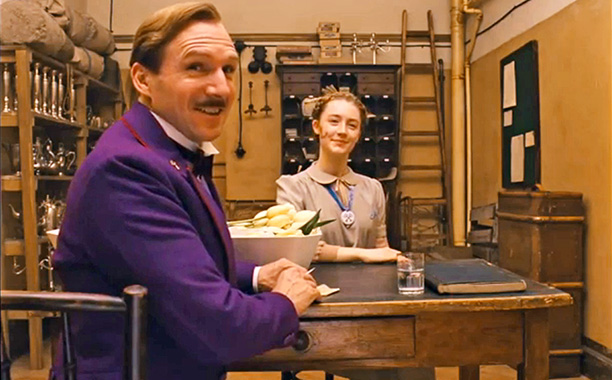Title: The Grand Budapest Hotel
Director: Wes Anderson
Starring: Ralph Fiennes, Tony Revolori, F. Murray Abraham, Mathieu Amalric, Adrien Brody, Willem Dafoe, Jeff Goldblum, Jude Law, Bill Murray, Edward Norton, Saoirse Ronan, Jason Schwartzman, Tilda Swinton, Tom Wilkinson, Owen Wilson.
Director Wes Anderson – famous for his skill to portray multifaceted worlds inhabited by eccentric characters – has found inspiration for his eighth feature film from some 1930s comedies and the memoirs of Viennese writer Zweig.
‘The Grand Budapest Hotel’ recounts the adventures of Gustave H, a legendary concierge at a famous European hotel between the wars. Zero Mufasa, the lobby boy who becomes his most trusted friend and successor, retraces his coming-of-age story – intertwined with the adventures shared with his mentor Gustave – within the resort that is set in a fictional spa town, in the imaginary county of alpine Zubrowka.
Anderson uses idiosyncratic lightness in handling strong emotions and themes in his movies, and has once again succeeded in creating a one-of-a-kind world, just like in ‘The Royal Tenenbaums,’ ‘The Darjeeling Limited’ and ‘Moonrise Kingdom.’ In ‘The Grand Budapest Hotel’ not only has he created a complete visual aesthetic, but he also depicts a cohesive 20th century history mirroring Eastern Europe, with a fascist takeover in the thirties and a Communist period, with some nostalgic touches for the belle epoque.
Two-time Oscar nominee Ralph Fiennes has comprehensively inspired Wes Anderson’s writing of Gustave’s character, whose performance mingles enticingly with the one of the entire cast (Tony Revolori, F. Murray Abraham, Mathieu Amalric, Adrien Brody, Willem Dafoe, Jeff Goldblum, Jude Law, Bill Murray, Edward Norton, Saoirse Ronan, Jason Schwartzman, Tilda Swinton, Tom Wilkinson, Owen Wilson). Even the cameo roles are brilliantly orchestrated in this choral eerie-pastel-colour fairytale.
The undercurrent melancholia is one of the latent and preponderant protagonists of the story, despite there are several comedic capers, triggered by chases and escapes. But the bittersweet undertone prevails, with an unusual blend that no one else can repeat, because it comes from Anderson’s personal sense of humour and perception of the world.
Technical: A
Acting: A
Story: A
Overall: A
Written by: Chiara Spagnoli Gabardi

